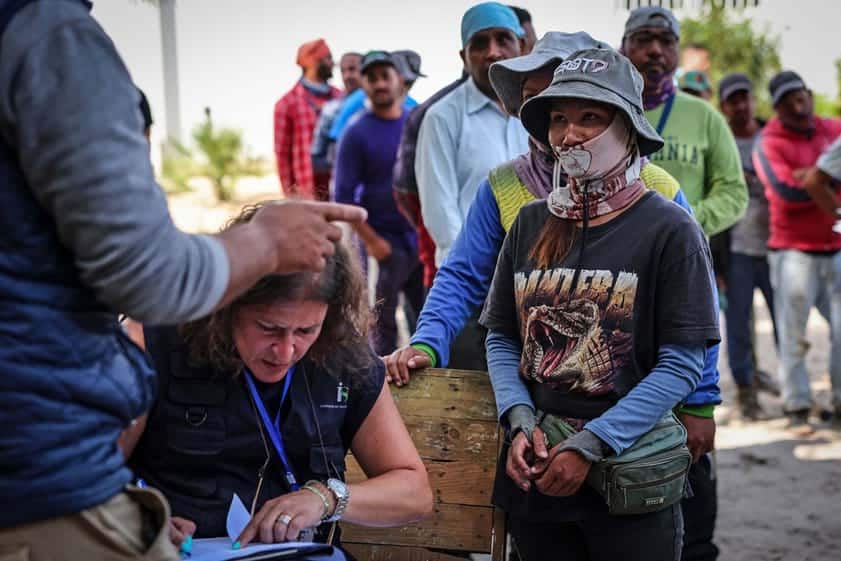Portuguese immigrant support association deplores new agreement
The Portuguese association for the defence of immigrant rights, Solidariedade Imigrante, has deplored the political agreement reached between the European Parliament and Member States on asylum and migration today, warning that Europe “cannot be turned into a fortress”.
The legislation, says the association, will simply increase the trafficking of human beings.
Speaking to the Lusa news agency, association leader Timóteo Macedo said the new legislation provides for the creation of prisons in the Union’s border countries, where illegal immigrants arriving in those countries will have to wait until they are expelled.
“For us, this is against the evolution of civilisation itself and of the world. Europe cannot be a country transformed into a veritable fortress for those who contribute so much to the development of this Europe and to the wealth of all of us, from an economic, cultural and social point of view,” he argued.
“We are clearly against these retrograde positions, which do nothing to help Europe become a humanist Europe in solidarity with its peoples.”
For the Council of Europe, these new rules will bring about a more efficient asylum system, which will increase solidarity between Member States. Timóteo Macedo dismisses this explanation as a lie, pointing out that it will be a solidarity “in which the countries in the centre (of Europe) pay not to receive (immigrants)”.
People should not be part of European Union business deals, he stressed. “People are people who want to survive, who want to move forward, who are no obstacle to Europe”.
In this regard, he emphasised the most recent results of the Migration Observatory, which revealed that immigrants in Portugal have been responsible for more than €1.6 billion in Social Security contributions – a figure seven times higher than what they earn – highlighting the “immense” contribution they make to “this tiny country here by the sea” and defending the premise that “every country in Europe needs millions of immigrants in order to continue blazing its own trail”.
In the opinion of Macedo, this new legislation “is clear food for thought for the far right”, which will not only increase feelings of xenophobia towards immigrants, but lead to an increase in trafficking.
“The more restrictive policies become, the more human trafficking is fuelled, people will pay more (to traffickers), people want to live and Europe has to understand this,” he said.
Timóteo Macedo also believes this new legislation could have an impact in Portugal, especially in terms of pressure from the far right, who want to review the immigration law and the entry of immigrants into Portugal, “with clearly xenophobic pretexts”.
He therefore argued that Portugal must keep the laws it has and develop responses in terms of housing, work and responding as quickly as possible to the legalisation processes that are pending documentation.
“We will be vigilant, we have always fought and we will continue to fight for immigrants to be respected with dignity,” he said.
The European Parliament and the Member States reached political agreement today on a wide-ranging reform of the European Union’s (EU) asylum and migration policy, after a final night of negotiations, which includes a series of texts and provides, in particular, for reinforced control of migrant arrivals in the EU; closed centres near borders to return those who are not entitled to asylum more quickly and a compulsory solidarity mechanism for the benefit of States under migratory pressure.
Following today’s provisional agreement, technical work is continuing to finalise the details of the new rules.
The aim is for there to be a final go-ahead in the meantime, given the necessary negotiation process between now and the European elections in June 2024, to share responsibilities fairly between Member States and act in solidarity when dealing with migratory flows.
LUSA




















